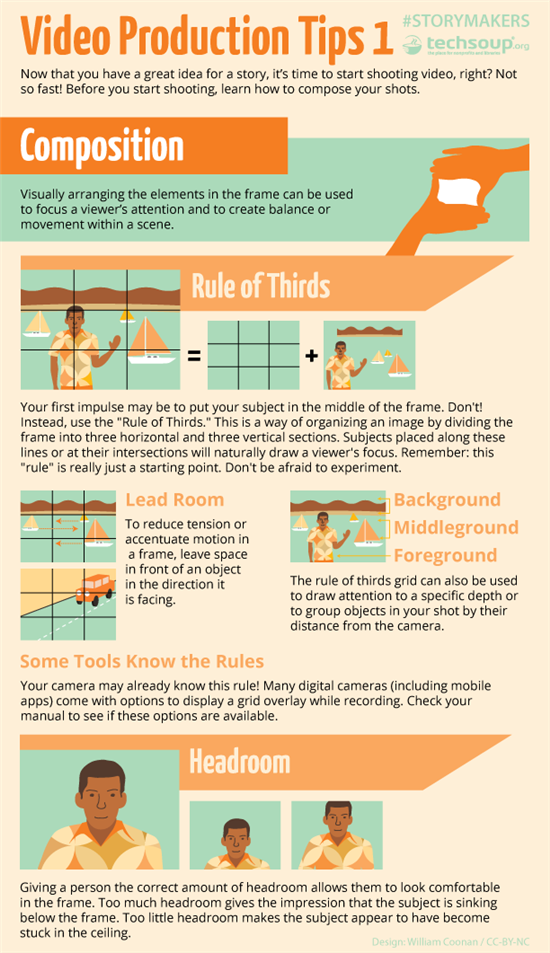Video can be very impactful as a learning and teaching resource and is also increasingly used as a form of assessment. However, you don’t need to be Steven Spielberg to produce a good video. Below are some resources and guidelines to get you started.
Shooting your video
We recommend Vimeo’s Video 101: Shooting Basics as a beginners introduction to shooting video:
This 4 minute video includes lighting, planning your shoots, composition and more.
Composing your video
This infographic gives a quick guide to basic video composition:

Sound recording
This video from Moviola gives a quick illustration of the importance of recording good audio as you shoot your footage.
Production tips
We suggest that you start by make a quick test recording before you go through the sometimes nerve-wracking experience of shooting live footage – just to check that everything is working, and looks and sounds how you expected.
When setting up your device to shoot video, check the settings for both audio and video, if possible. If you aren’t sure what settings to use, go for the highest quality for everything, because it is possible afterwards when editing to reduce higher quality raw footage to lower quality if needed, but not possible to improve poor quality footage.
Editing software
For beginners, we suggest the following two options – both are easy to use, and contain basic tools to enable you to organise the running order of clips, trim sections of footage, and add other elements such as opening and closing credits:
- PowerPoint (yes, humble PowerPoint!)
- Adobe Spark
Further resources
To develop your production skills further, or explore a specific aspect of production in depth, try moviola – recommended by our colleagues at the Centre for Broadcast Journalism.
NTU students also have free access to Lynda.com, which contains courses that cover film production, and instructional guides on a wide range of post-production software.
Phillip Pierce
Learning Technologist
Learning and Teaching Support Unit (LTSU)
School of Arts & Humanities – Nottingham Trent University
phillip.pierce@ntu.ac.uk MAE012 | 0115 84 83017

2 thoughts on “A quick guide to producing video for Learning, Teaching or Assessment”
Comments are closed.